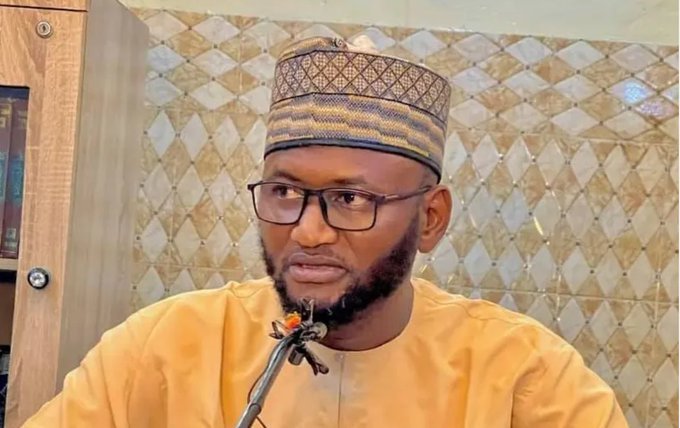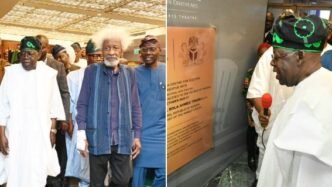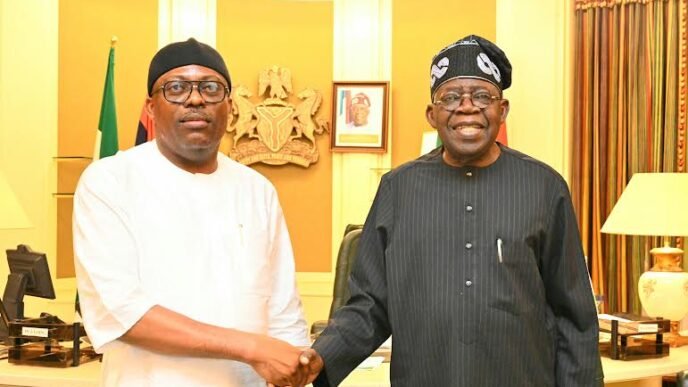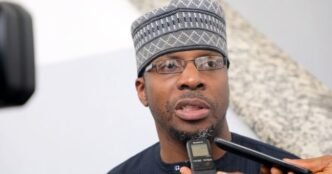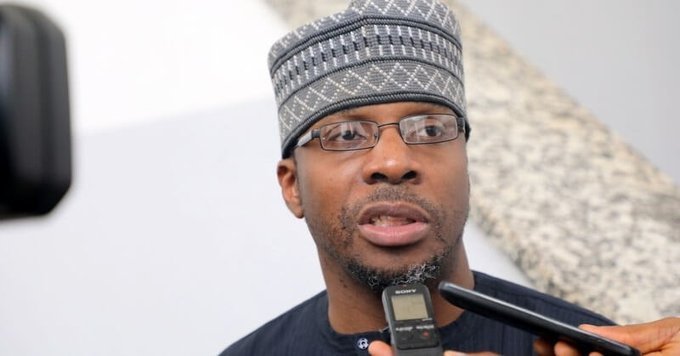The Kano State Shura Committee has suspended prominent Islamic cleric, Sheikh Lawal Shuaib Abubakar, popularly known as Sheikh Triumph, from preaching and teaching until investigations into allegations of blasphemy against him are concluded.
The suspension, announced on Thursday, has drawn widespread attention in northern Nigeria, sparking debate among religious leaders, scholars, and members of the public over the boundaries of religious interpretation and the role of clerics in public life.
The Allegations Against Sheikh Triumph
While full details of the blasphemy allegations have not been officially disclosed, sources within the religious community say the matter stems from comments made by the cleric during a recent sermon. The remarks reportedly generated controversy among fellow scholars, with some interpreting them as disrespectful to core Islamic teachings.
The Shura Committee—a council of senior scholars tasked with overseeing Islamic affairs in Kano—moved swiftly to suspend the cleric pending investigation.
In its statement, the committee emphasized that the suspension was necessary to “preserve peace, ensure due process, and maintain the sanctity of Islamic scholarship.”
Who Is Sheikh Triumph?
Sheikh Lawal Shuaib Abubakar, popularly called Sheikh Triumph, has in recent years become one of the most followed clerics in northern Nigeria.
- He is known for his energetic preaching style, often delivering fiery sermons in Hausa that resonate with young audiences.
- His messages frequently go viral on social media, extending his reach beyond Kano to the wider Hausa-speaking world.
- Supporters describe him as a bold reformist voice, while critics argue that his style sometimes borders on controversial interpretations of religious texts.
Sheikh Triumph’s influence, particularly among urban youths, has made him a significant figure in Kano’s religious landscape. His suspension, therefore, represents more than just an internal disciplinary action—it carries broader implications for faith, authority, and free expression in the state.
The Role of the Kano Shura Committee
The Kano Shura Committee is a council of Islamic scholars established to guide religious affairs, resolve disputes, and ensure clerics adhere to orthodox teachings. It wields considerable influence, particularly in matters of blasphemy and doctrinal interpretation.
In recent years, the committee has taken a firm stance against what it perceives as unorthodox preaching. Its decisions are binding within Kano’s Islamic institutions and are often backed by both traditional and political authorities.
By suspending Sheikh Triumph, the committee is signaling its commitment to enforcing discipline within the clerical community and ensuring that public sermons do not inflame tensions or mislead followers.
Blasphemy: A Sensitive Issue in Kano
Blasphemy remains one of the most sensitive and volatile issues in northern Nigeria, particularly in Kano State, which enforces Sharia law alongside the Nigerian Constitution.
- In 2015, a well-known case involving a singer, Yahaya Sharif-Aminu, who was sentenced to death for blasphemy, sparked both local and international debates.
- Clerics accused of blasphemy often face strong public backlash, and some cases have escalated into street protests and violence.
- For authorities, swift intervention is often seen as necessary to prevent unrest.
Given this history, the Shura Committee’s decision to suspend Sheikh Triumph reflects the delicate balance Kano’s religious leaders must maintain between freedom of expression and respect for religious sensitivities.
Public Reactions to the Suspension
Reactions to Sheikh Triumph’s suspension have been swift and divided.
- Supporters of the cleric argue that he is being unfairly targeted for speaking boldly about issues that others avoid. They view the suspension as an attempt to silence reformist voices.
- Critics maintain that clerics with such large followings must be cautious with their words, as a single misinterpreted statement can mislead thousands and fuel division.
- Neutral observers say the case highlights the ongoing tension between modern, media-driven preaching and the more traditional frameworks of Islamic authority in Kano.
On social media platforms like Facebook, X (formerly Twitter), and TikTok, hashtags referencing Sheikh Triumph began trending shortly after the announcement, with users debating whether the suspension was justified.
Implications for Kano’s Religious Climate
The suspension of a high-profile cleric like Sheikh Triumph carries broader implications for the religious, cultural, and political climate in Kano.
- Authority of Traditional Institutions: The case reaffirms the authority of the Shura Committee as the final arbiter of acceptable religious discourse.
- Control of Sermons: It underscores growing scrutiny of public preaching, particularly in an era where sermons are recorded and widely shared online.
- Tensions Among Clerics: The decision may fuel rifts within Kano’s clerical community, as younger, more popular preachers often clash with older, conservative scholars.
- Impact on Followers: The large youth base that follows Sheikh Triumph could feel alienated, especially if they view the suspension as politically or religiously motivated.
Precedents and Past Controversies
This is not the first time a cleric has faced disciplinary action in Kano.
- In past years, clerics have been suspended or barred from preaching for controversial statements deemed contrary to orthodox teachings.
- The Hisbah Board, Kano’s religious police, has also been involved in regulating sermons, monitoring clerics, and intervening in cases of perceived religious misconduct.
- These precedents show a consistent pattern of strict enforcement when it comes to safeguarding religious orthodoxy in the state.
What Happens Next?
The Shura Committee has confirmed that its investigation will include:
- A review of Sheikh Triumph’s recent sermons.
- Consultations with other scholars to determine whether the remarks amount to blasphemy.
- An opportunity for Sheikh Triumph to defend himself before a final decision is made.
Until then, the cleric remains barred from delivering sermons or engaging in teaching.
Observers say the outcome of the investigation could either lead to his reinstatement with conditions, or a more permanent ban that could reshape his role in Kano’s religious scene.
Conclusion
The suspension of Sheikh Lawal Shuaib Abubakar, popularly known as Sheikh Triumph, is more than an internal clerical matter—it reflects the deep sensitivities surrounding religion, authority, and free expression in Kano State.
As the Shura Committee carries out its investigation, all eyes will be on the outcome, which could set a new precedent for how northern Nigeria navigates the intersection of modern preaching, social media influence, and traditional religious authority.
For now, Sheikh Triumph’s voice has been silenced, but the debate over his words—and what they mean for Kano’s religious future—has only just begun.


